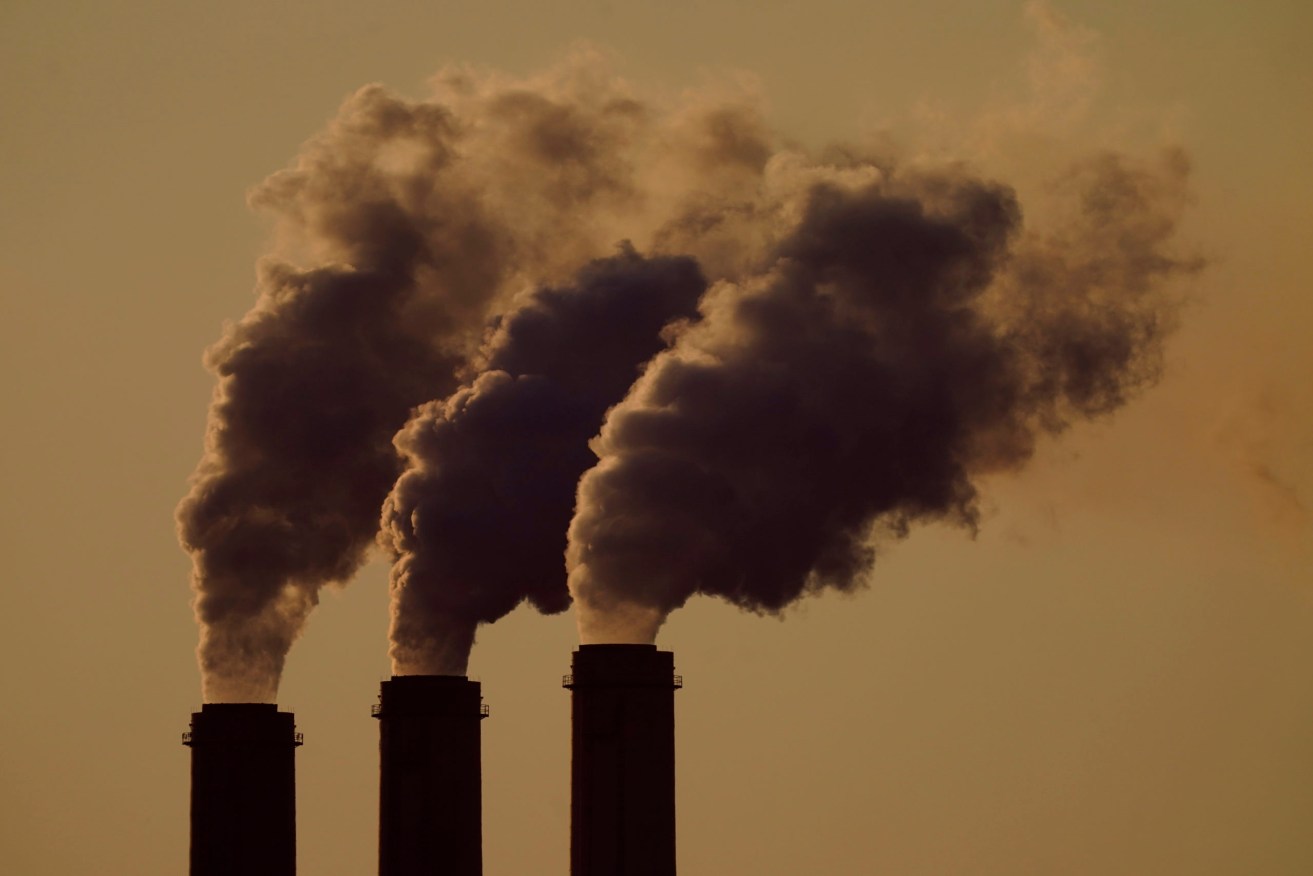Nation’s biggest polluters face new curbs on emissions
Labor’s plan to force Australia’s largest carbon polluters to cut their emissions by 4.9 per cent to tackle climate change appears on track to pass parliament by the end of the week.

Photo: AP/Charlie Riedel
With the bill to broaden the safeguard mechanism passing the lower house on Monday, Labor will need the support of the Greens and two cross benchers in the Senate to make it into law.
The safeguard mechanism, which was initiated by the coalition government but is being overhauled by Labor, will apply to the country’s 215 biggest emitters and force them to reduce their emissions by 4.9 per cent each year.
Climate Change Minister Chris Bowen would not be drawn on whether the changes made to the safeguard mechanism will impact the viability of gas projects.
“What I more than concede … is that we have required new projects whether they be gas or anything else, to meet international best standards on emissions,” he told the ABC.
Mr Bowen rejected the description made by Greens leader Adam Bandt likening the government to the coal and gas lobby.
“We are delivering, we’re getting on with it, we’re getting the job done,” he said.
Companies that aren’t able to meet the targets would be able to buy carbon credits and the government says the policy is essential to achieving a 43 per cent emission reduction by 2030 and net-zero by 2050.
Mr Bandt announced on Monday a deal had been struck to put a ceiling on gross greenhouse gas emissions, which won’t be able to exceed current pollution levels of 140 million tonnes a year, and there will be a decreasing cap over time.
The bill will include a “pollution trigger” that will require the climate change minister to test a new or expanded project’s impact on the hard cap and net carbon budgets.
If the assessment finds the project would contribute to exceeding the cap or budget, the minister must consult and recalibrate the rules or impose conditions on new entrants.
Mr Bandt said the amendments meant new fossil fuel projects were less likely to go ahead.
“Investors see the writing on the wall, know that coal and gas is on its way out and understand that the hard cap negotiated by the Greens means there’s a limit on coal and gas expansion in this country from now on,” he said.
As well, all new gas fields for export will need to be carbon neutral from day one.
The two Jacqui Lambie Network senators are also expected to support the bill.
“We are OK with it,” the network’s Tammy Tyrrell told ABC TV.
“It is looking like concrete, steel smelters (will get) … support so they can be cleaner and greener into the future. We are good with that. We want industry in Tasmania.”
Mr Bandt had been negotiating for a ban on all new coal and gas, but while this was not achieved the changes to the bill will make it harder for such projects to go ahead.
Opposition climate change spokesman Ted O’Brien described it as a “carbon tax on prosperity”.
The Australian Petroleum Production and Exploration Association said it would make it harder for gas to be used to transition away from coal and provide reliable backup for renewable energy.
The Climate Council described it as a “wake up call to any board or business executive who thinks they can keep stalling genuine climate action”.
– AAP




